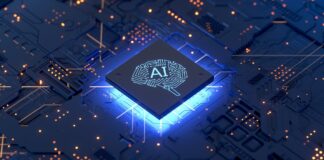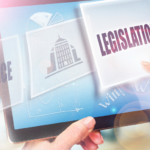Tag: Artificial intelligence
January 7, 2026
Data Privacy and Protection
Data Privacy and Protection
The DPIIT Working Paper on AI and Copyright: Regulatory...
Artificial intelligence ("AI") is no longer at the margins of business strategy. For many organisations, it has become embedded in product design, customer engagement, internal workflows and long-term planning......
July 16, 2025
Intellectual Property | Trademark
Intellectual Property | Trademark
Generative AI and Trademarks: The Need for Legislative ...
Ownership is the cornerstone of intellectual property rights (IPR). It provides legal protection to creators, ensuring that they can derive proprietary benefits from their creations and safeguard their efforts and interest....
January 29, 2025
Data Privacy and Protection
Data Privacy and Protection
EMERGING TRENDS IN DATA PRIVACY IN INDIA: ANTICIPATIONS...
In August 2023, India witnessed a pivotal shift in its data privacy regulatory landscape with the enactment of the Digital Personal Data Protection Act, 2023 ("DPDP Act"). The DPDP Act provides a comprehensive set of guidelines that must be adhered to when managing digital personal data, ensuring the protection of individuals' privacy rights while balancing legitimate business needs and government requirements. ......
January 15, 2025
Technology, Media and Telecom
Technology, Media and Telecom
LEGAL PERSPECTIVES ON AI GOVERNANCE IN INDIA: A SUMMAR...
Artificial Intelligence ("AI") holds transformative potential for India’s economy and society. However, this power also brings legal, ethical, and regulatory challenges that necessitate a comprehensive governance framework. The "Report on AI Governance Guidelines Development" ("Report") outlines India’s roadmap for addressing these challenges through a legally sound and inclusive approach. ......
March 21, 2024
Technology, Media and Telecom
Technology, Media and Telecom
AI in the Spotlight: Insight’s from MeitY’s...
The Ministry of Electronics and Information Technology ("MeitY"), on March 1, 2024, issued an advisory for all intermediaries under the Information Technology Act, 2000 ("IT Act") and Information Technology (Intermediary Guidelines and Digital Media Ethics Code) Rules, 2021 ("IT Rules"). ......
April 5, 2023
Data Privacy and Protection
Data Privacy and Protection
The Right to be Forgotten, But Not Gone
In today’s news cycle, the interplay of AI, media, and privacy regulations are omnipresent and inescapable hot-button issues. However revolutionary as this advancement in technology may be, such fast-paced growth may have several repercussions on our everyday lives. We are moving towards a world where we co-opt and coexist with AI, becoming increasingly more intertwined with our everyday lives. ......
November 17, 2021
Technology, Media and Telecom
Technology, Media and Telecom
Smart Contracts in India
With the advent of modern technology and innovation, we are moving towards a more digitised world where automation is the name of the game. The ideas surrounding the blockchain, artificial intelligence and big data are revolutionary and are poised to change the way business and human infrastructure operates. ......
May 6, 2020
Intellectual Property | Patent
Intellectual Property | Patent
USPTO denies Inventorship to Artificial Intelligence
On April 22, 2020, the United States Patent and Trademarks Office (the “USPTO”) issued an order refusing inventorship of a patent application to DABUS, an Artificial Intelligence (AI) machine. This decision, which broadly appears to align with the position being taken in Europe and the United Kingdom with regard to the same invention, is likely to have a significant impact on the future of patenting, at least until there are statutory amendments to the contrary, or until it gets overturned for any reason....
February 1, 2020
Intellectual Property | Patent
Intellectual Property | Patent
Patenting AI inventions: best practices from around the...
Artificial Intelligence (AI) is changing the way we live and engage with the world. Besides smart devices (phones, speakers), and self-driving cars, AI is also set to revolutionize biotechnology and the health sector. Deep learning algorithms are being used in areas such as genomic data analysis, cellular profiling and characterisation which find use, for example, in cancer diagnosis, drug design and pharmacology, genome sequencing, and protein structure prediction. ...





















